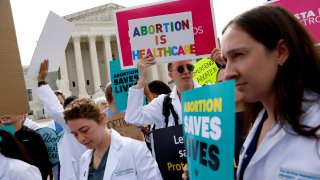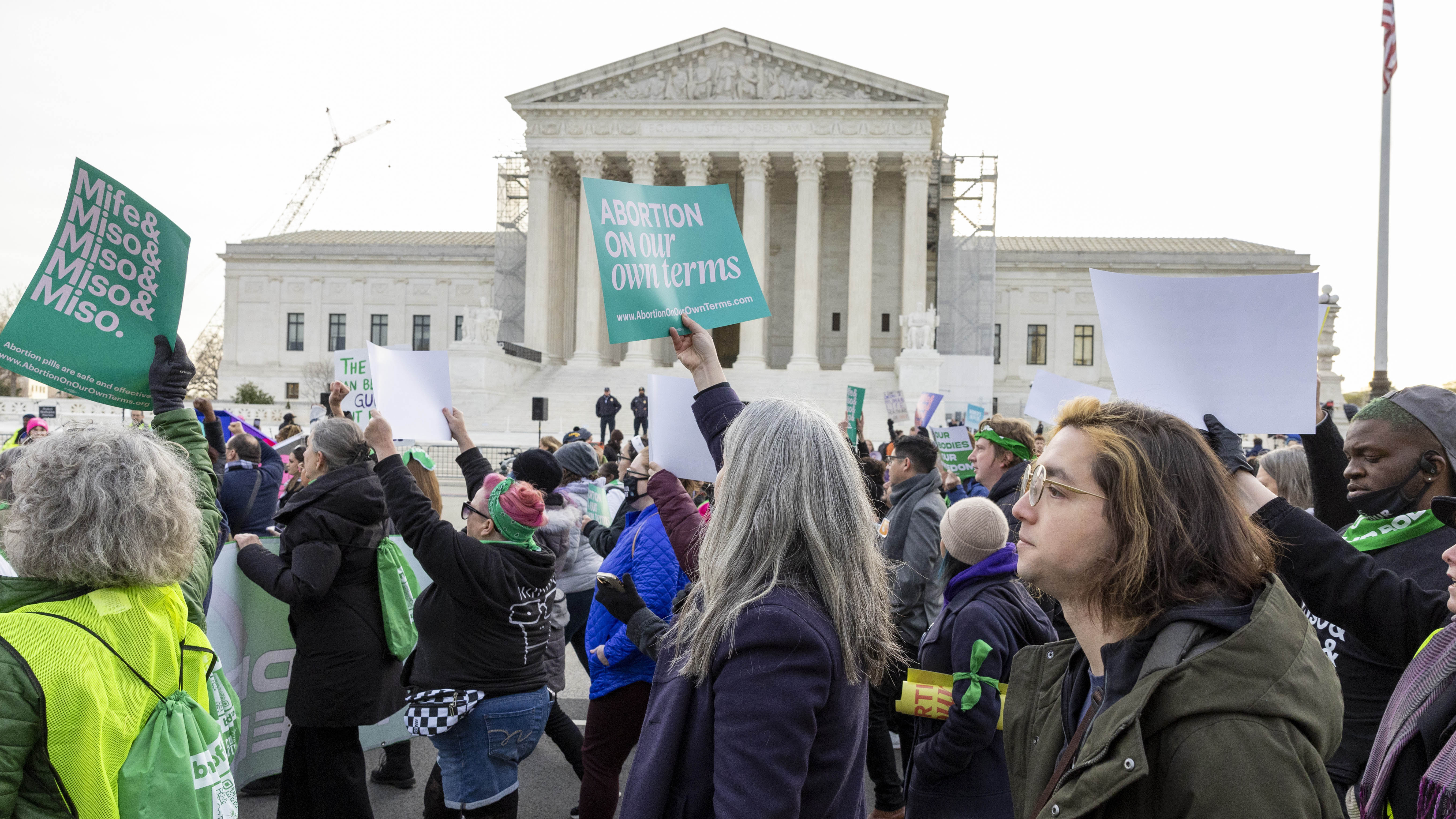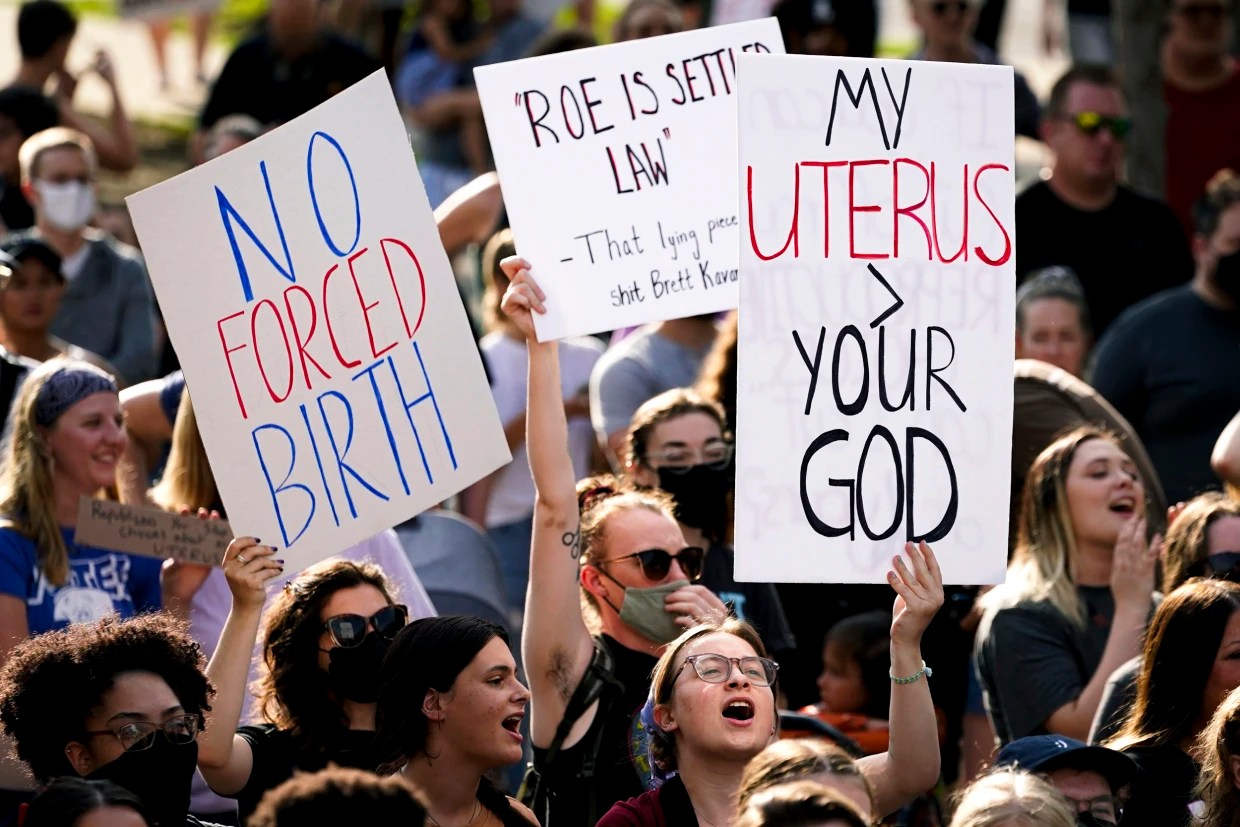
Conservative Supreme Court justices appeared skeptical Wednesday that state abortion bans that took effect after the sweeping ruling overturning Roe v. Wade violate federal health care law, even during some medical emergencies.
The case marks the first time the Supreme Court has considered the implications of a state ban since the nationwide right to abortion was overturned. It comes from Idaho, which is among 14 states that now ban abortion at all stages of pregnancy with very limited exceptions.
Watch NBC6 free wherever you are
>While members of the high court's conservative majority expressed concern about pregnant patients' ability to get emergency care in the state, it was unclear whether any were swayed by the Biden administration's argument.
The Justice Department says abortion care must be allowed in emergencies that seriously threaten a woman's health under a federal health care law that requires hospitals accepting Medicare to provide emergency care regardless of patients' ability to pay.
Get local news you need to know to start your day with NBC 6's News Headlines newsletter.
>“How can you impose restrictions on what Idaho can criminalize, simply because hospitals in Idaho have chosen to participate in Medicare?” said Justice Samuel Alito, who wrote the decision overturning Roe v. Wade.
Justices on the high court's liberal minority, meanwhile, raised sharp questions about whether Idaho's law was putting women's health at risk.
“Within these rare cases, there’s a significant number where the woman’s life is not in peril, but she’s going to lose her reproductive organs. She’s going to lose the ability to have children in the future unless an abortion takes place,” said Justice Elena Kagan.
The Biden administration argues that even in states where abortion is banned, federal health care law says hospitals must be allowed to terminate pregnancies in rare emergencies where a patient’s life or health is at serious risk.
Idaho contends its ban has exceptions for life-saving abortions but allowing it in more medical emergencies would turn hospitals into “abortion enclaves.” The state argues the administration is misusing a health care law that is meant to ensure patients aren't turned away based on their ability to pay.
The Supreme Court has allowed the Idaho law to go into effect, even during emergencies, as the case played out. It makes performing an abortion a felony punishable by up to five years in prison.
Dueling protests were taking shape outside the court before the start of arguments on Wednesday. “Abortion saves lives,” read signs displayed by abortion rights supporters. Opponents displayed a sign that read, “Emergency rooms are not abortion clinics.”
Doctors have said Idaho’s abortion ban has already affected emergency care. More women whose conditions are typically treated with abortions must now be flown out of state for care, since doctors must wait until they are close to death to provide abortions within the bounds of state law.
Meanwhile, complaints of pregnant women being turned away from U.S. emergency rooms spiked after the Supreme Court overturned Roe v. Wade, according to federal documents obtained by The Associated Press.
Anti-abortion groups blame doctors for mishandling maternal emergency cases. Idaho argues the Biden administration overstates health care woes to undermine state abortion laws.
The justices also heard another abortion case this term seeking to restrict access to abortion medication. It remains pending, though the justices overall seemed skeptical of the push.
The Justice Department originally brought the case against Idaho, arguing the state’s abortion law conflicts with the 1986 Emergency Medical Treatment and Active Labor Act, known as EMTALA. It requires hospitals that accept Medicare to provide emergency care to any patient regardless of their ability to pay. Nearly all hospitals accept Medicare.
A federal judge initially sided with the administration and ruled that abortions were legal in medical emergencies. After the state appealed, the Supreme Court allowed the law to go fully into effect in January.
The Supreme Court is expected to rule by the end of June.



